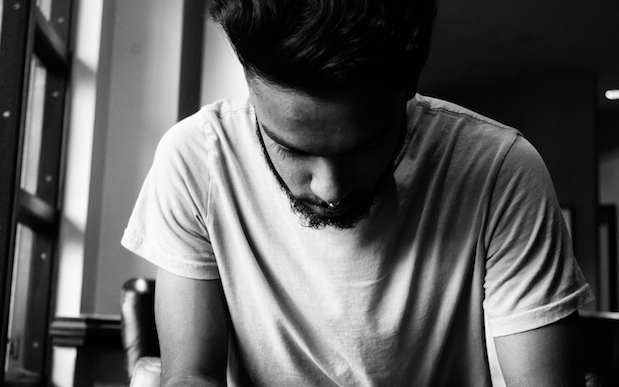
This week, Bachelor In Paradise made headlines nation-wide for all the wrong reasons. The show’s once-darling couple – Sam Cochrane and Tara Pavlovic, who fell in love while all of Australia watched on – became embroiled in a he said/she said public spat.
Concerningly, Sam told Woman’s Day that toward the end of their relationship, Tara became physically and verbally abusive toward him. The magazine published pictures given to them by Sam of bruises and bite marks he says Tara inflicted on him during arguments.
It’s fair to say no one thinks violence within a relationship is okay. But looking around social media, the response to Sam’s claims of domestic violence were far from supportive. In fact, the majority of comments left by the public seem to either trivialise the accusations or imply that Sam was lying.
It’s no secret – and should never be forgotten or diminished – that women experience the vast majority of domestic abuse in Australia. According to statistics from the ABS, 1 in 3 women will experience some form of it in their lifetime, which is revolting and demands change. It is incredibly uncommon for men to experience domestic violence at the hands of women in relationships.
However. Does that mean trivialising male victims of domestic violence — whether that’s at the hands of a female or male partner — is warranted? I don’t think so. In fact, I feel that if we treat domestic violence against men as a joke or something that doesn’t deserve a serious response, we harm the fight against domestic violence as a whole.
Firstly, it’s not as uncommon as you might think for men to experience abuse in relationships. I spoke to Nicole McMahon, General Manager of 1800 RESPECT, about the statistics.
We get our statistics from the ABS Personal Safety Survey, and the Australian Institute of Criminology. 1 in 2 Australian men have experienced physical violence, 1 in 7 have experienced emotional abuse by a current or former partner, and 1 in 22 have experienced sexual violence. So they’re still quite alarming statistics.
It’s important to note that the 1 in 2 is any kind of physical violence – as in, within an intimate relationship but also someone being king-hit on the street. Also, these statistics don’t differentiate between violence at the hands of a woman or a man, which is important to note, as Nicole explains.
It’s hard to break that particular set of statistics down, but certainly most violence is from a male rather than from a female perpetrator.
All of this being said, the concern here is that men do experience physical abuse and assault – and when we minimise victims experiences, we contribute to the toxic masculinity that pushes men to be “strong” and not be the victim. Which in turn makes it all the more difficult for men to speak up when they are being physically abused, no matter who is doing the abusing.
There’s certainly a lack of information acknowledging that intimate partner violence. Men in that situation might experience discrimination or minimisation by either police, legal systems or provided the support services. They could feel some pressure to act “male”, and it could be fear that there’s nowhere to go for support that’s actually safe. And there’s a lot of shame and confusion around this assumption that men can’t be victims. So there’s certainly a lot of things they can experience in that situation.
If we don’t take domestic violence against men seriously, we’re condoning it. That is the bottom line. It’s not that I think domestic violence against men needs the national attention we give to domestic violence against women – the statistics show violence against women is a disgusting epidemic. We need the focus to be there because it’s a massive, ongoing problem. But I don’t think that means violence against men gets to be a joke.
It’s also important to consider that toxic masculinity where men are expected to act “male”, i.e strong, powerful, and so on (and not the victim) is intrinsically tied to the epidemic of domestic violence against women. It’s men asserting dominance and control with violence. Why would we want to perpetuate that when we fight so bloody hard for women’s safety? If part of changing the culture of men committing violent acts is to break down the stereotype that men need to be in control, that “boys will be boys” and “men just can’t help themselves sometimes”, all of that bullshit – then don’t we also need to break down the idea that men can’t possibly ever be the victim?
It’s a touchy subject. And as a woman I am passionate about not diminishing the fight against domestic violence toward my own gender. Like #MenToo and #NotAllMen, often when we shed light on issues that are male-related, it can derail the very important conversation that’s already occurring.
But this isn’t #MenToo. This is about continually being the watchdog for toxic masculinity and the way we perpetuate it culturally. When we act as though men are never the victims, can “take” the violence from women, and should be strong enough to do so – we further perpetuate the wider toxicity that is the foundation for domestic violence as a whole.
Let’s stop treating ANY domestic violence like a joke.



